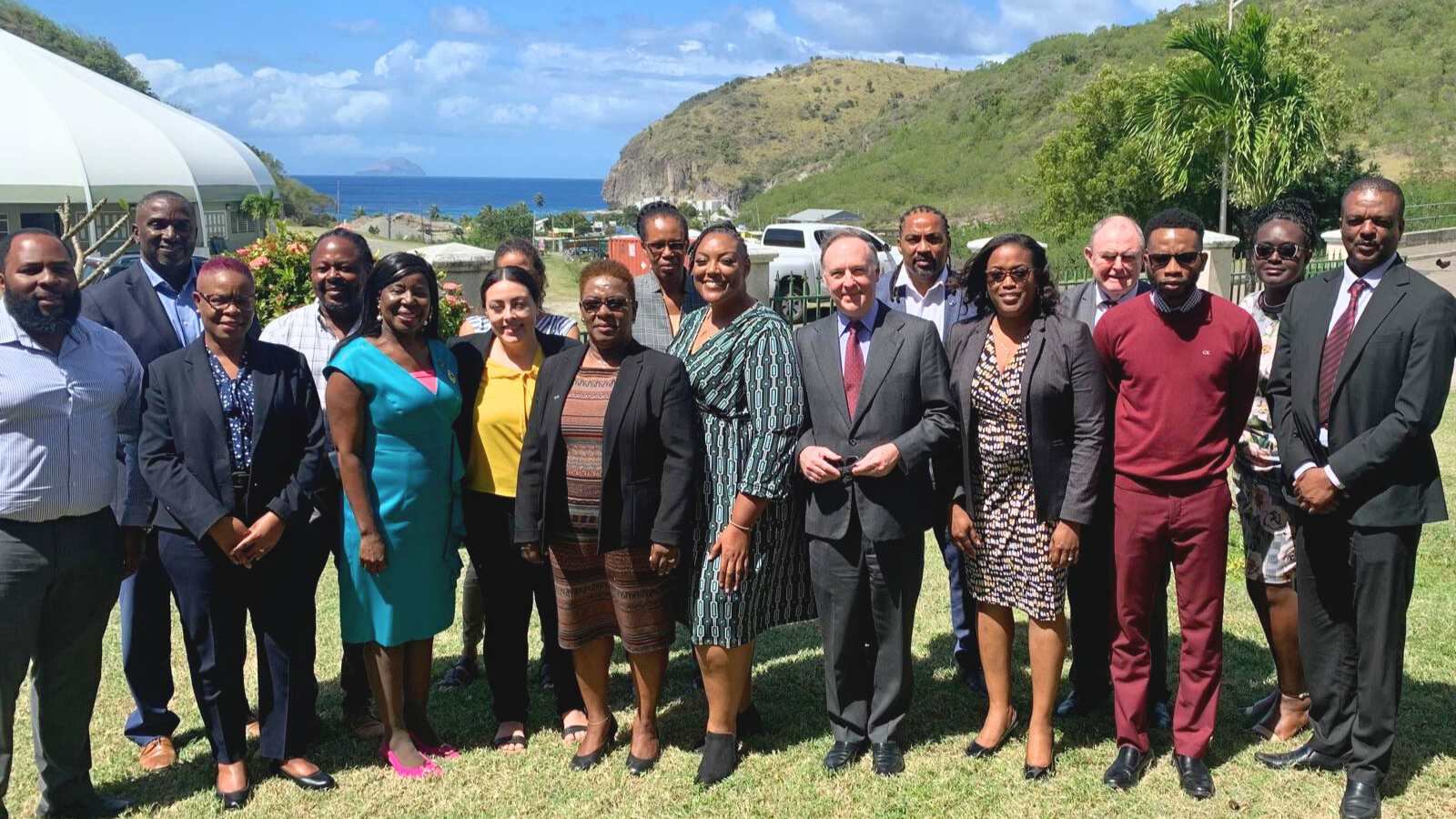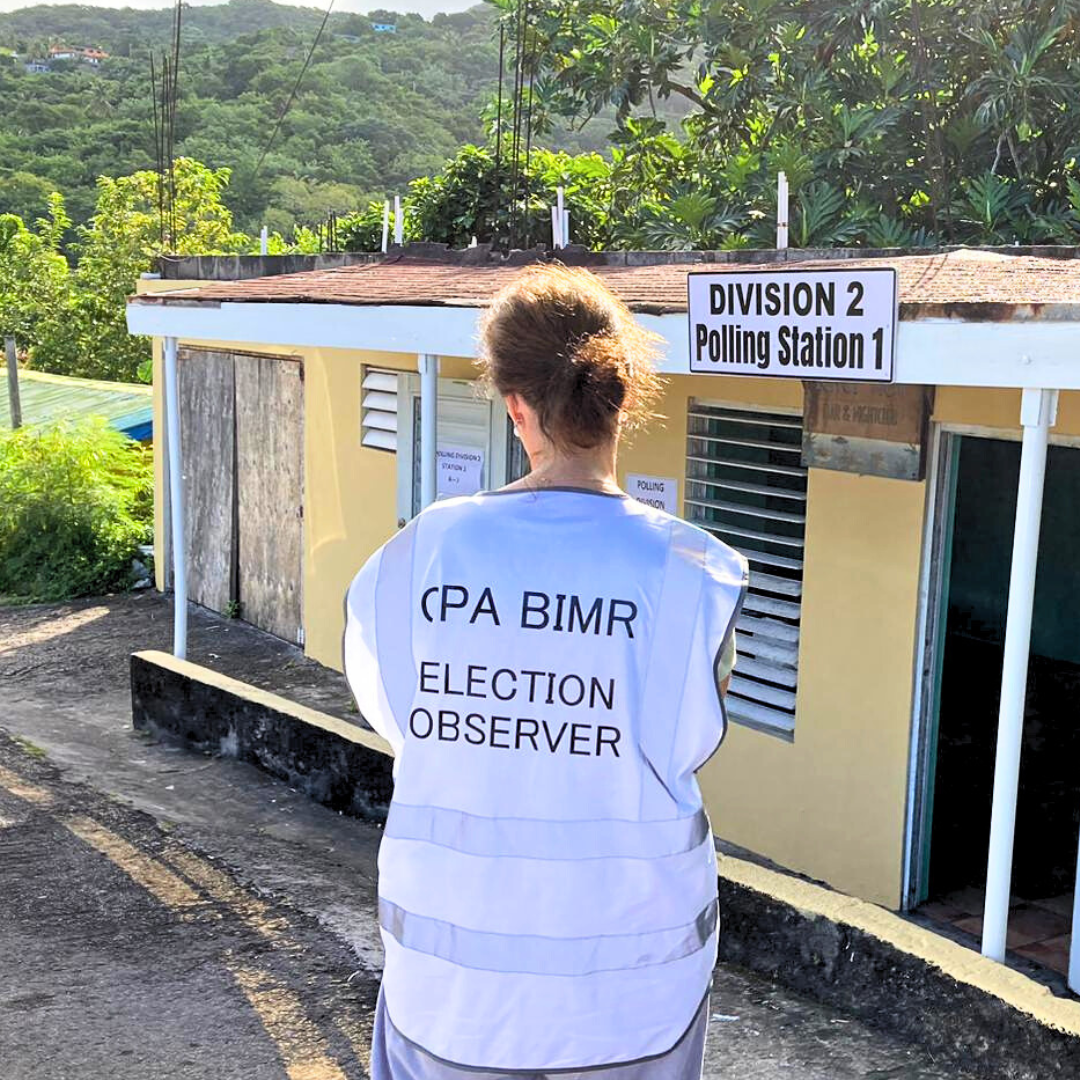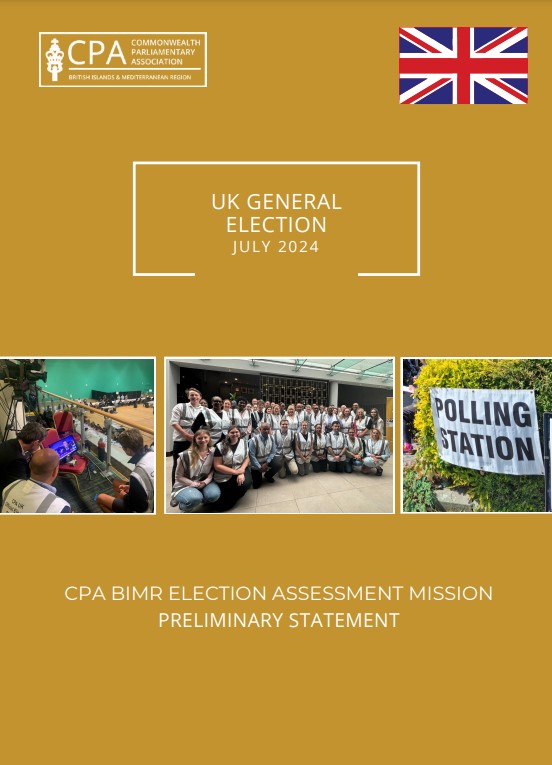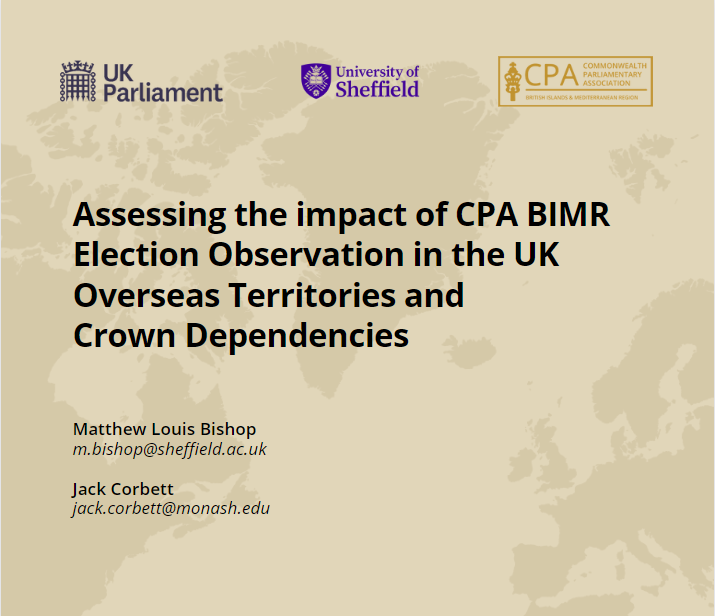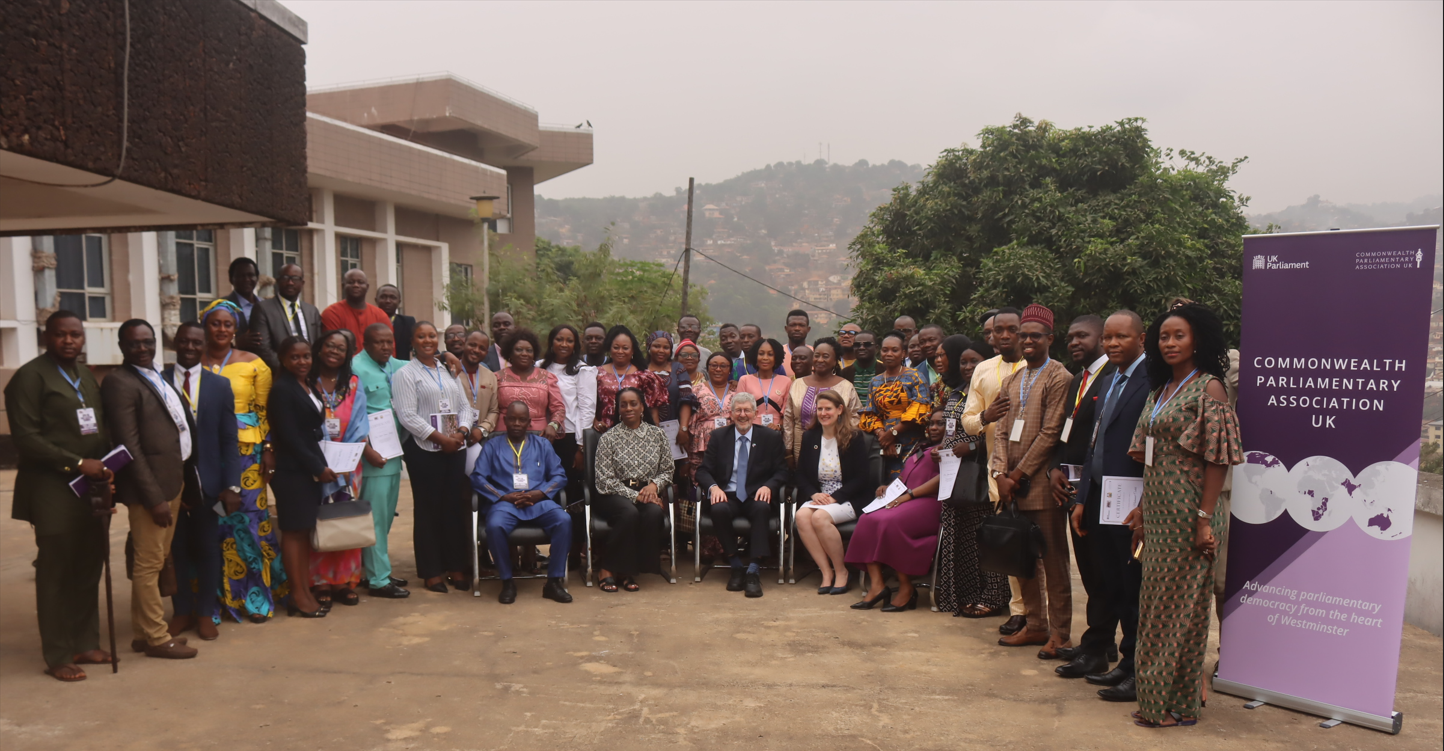Well-run, Well-understood, Transparent yet Imperfect 2024 General Election, Says New Report by Commonwealth Election Observers
Published 02 September 2024
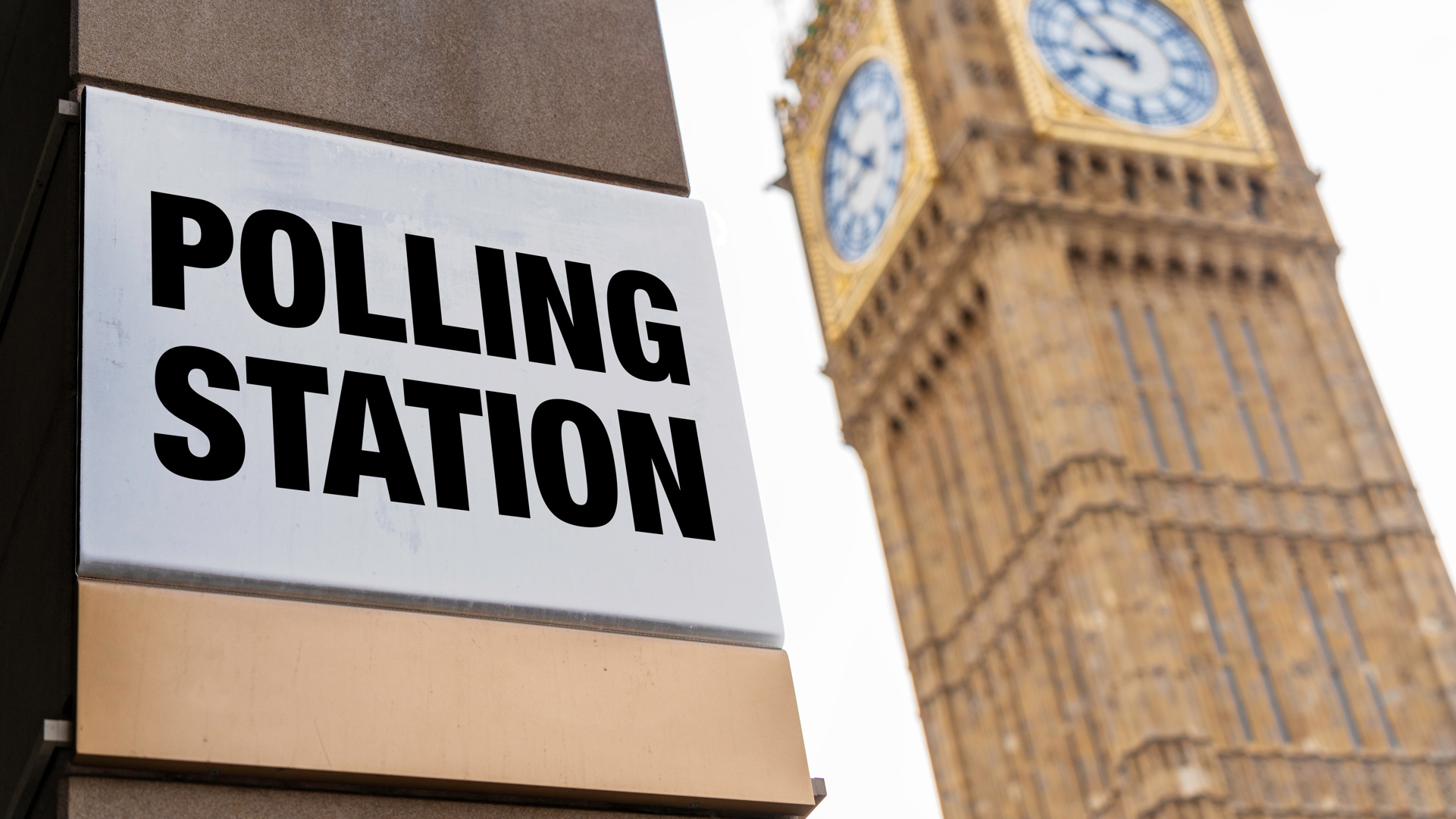
An Election Assessment Mission of the 2024 UK General Election, conducted by the British Islands and Mediterranean Region of the Commonwealth Parliamentary Association (CPA BIMR) has published its full report, detailing recommendations on how the UK can improve its electoral process.
The purpose of the Mission was to independently observe the election taking place across the UK on 4 July and assess these findings against international standards as well as those enshrined in the UK’s domestic law.
Providing a broad snapshot of polling, observation was carried out at 263 voting stations across eight constituencies by 29 Commonwealth parliamentarians from 16 independent legislatures in addition to 24 staff from the UK Parliament. The Mission met with key stakeholders, including candidates, election officials and community groups to understand the environment and unique factors present in the 2024 election.
Watch the Head of Mission and election experts behind the report in a discussion on the report below
Overall, the Mission was highly satisfied with the administration of the election (deeming the process good or very good in 96% of polling stations), voters’ understanding of the procedure (98% good or very good) and the transparency of the election process (99%). In particular, it praised many actors involved in the administration of the election, citing the smooth process carried out by local authorities and the “professionalism” of officials involved.
The Mission noted the highly decentralised and local-led administration of the election, stemming from the historical evolution of the UK’s democracy. At the same time, it recognised the delivery of the 2024 election was “assessed positively”, even in a context of “exceptionally tight deadlines” which contributed to some “staffing problems.”
In addition, it praised the role of the Boundary Commissions for conducting reviews of constituency boundaries in an “open and consultative manner”, implemented in time for this election.
“Public confidence extended to the Electoral Commission”, the Mission said. To strengthen its role in electoral analysis, the Mission recommended that the Commission be given further responsibilities for collecting and publishing data. The Mission noted an absence of centralised data on candidates and considered the Commission would be the logical body to collect and analyse candidate information, such as gender and age, on a national level.
Meanwhile, the Mission reported on questions over the continued independence of the Commission. It supported the Electoral Commission’s own view that an amendment, brought in 2022, allowing the government to designate a ‘Strategy and Policy Statement’ outlining the Commission’s work “is inconsistent with its independent mandate” and should be “abolished”.
The report also focused on the environment in which the election took place. “Mission observers remarked on the relative invisibility of the outdoor campaign, which many interlocutors argued had increasingly moved online”.
Mission observers issued concerns over a “high level of hostility and anger marring the 2024 campaign”. In particular, the Mission decried instances of abuse “including death threats” directed toward candidates and noted the disproportionately high level of abuse targeted at women and minority candidates. It said “concerted efforts to address growing concerns about violence, threats and intimidation during the election campaign” need to be made to ensure “unhindered participation” of all.
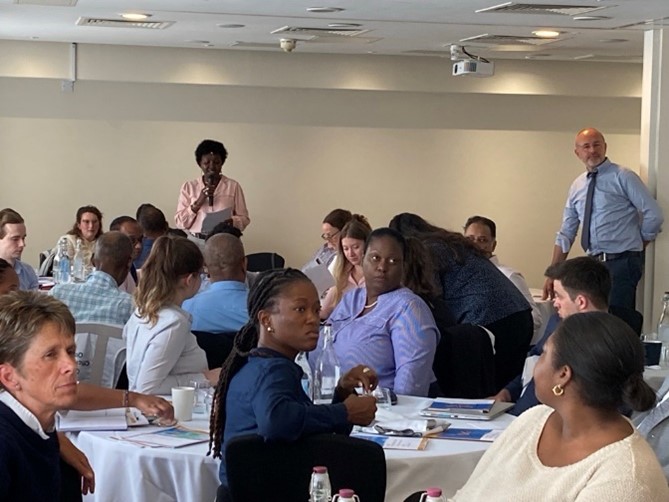
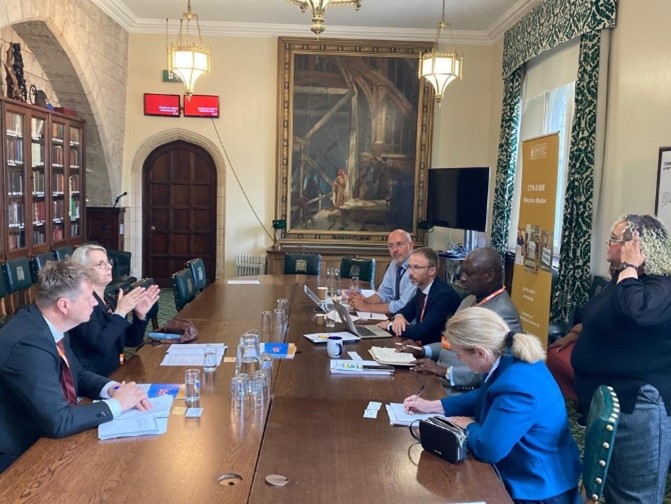
Observers participating in training before deployment around the UK (left) and a stakeholder meeting underway in London (right).
Commenting on the overall findings, Head of the Mission and Member of the National Assembly of Kenya, Hon. Dr. Otiende Amollo MP concluded:
“The UK has a strong democracy. We see this in the level of trust and confidence held in each institution responsible for the electoral process – from the local administrations overseeing the vote to the independent bodies drawing boundaries and guiding the process.
“The digital transformation we are living through is changing every party of society. Elections, it seems, are not immune from this. Throughout the many elections I have observed across the world, I have never experienced one so inconspicuous on the streets. Previously, the outdoor campaign has always felt inescapable. However, during 2024 UK General Election, a significant amount of campaigning seems to have taken place online – perhaps a sign of more things to come”.
“Despite the confidence we hold in the running of the election, this Mission recognises that no democracy is infallible, and no election is perfect. A campaign that had so much online presence also saw a high-level of hostility directed towards its candidates at times, most concerningly this seems to have been disproportionately targeted at specific groups, impacting the rights of all to freely participate in politics. Overcoming such challenges, while enjoying the fruits of a free society are tests for democracies. I hope these recommendations offer some guidance on the way forward.”
The full report can be accessed here: Final Report - CPA BIMR Election Assessment Mission, UK General Election July 2024

